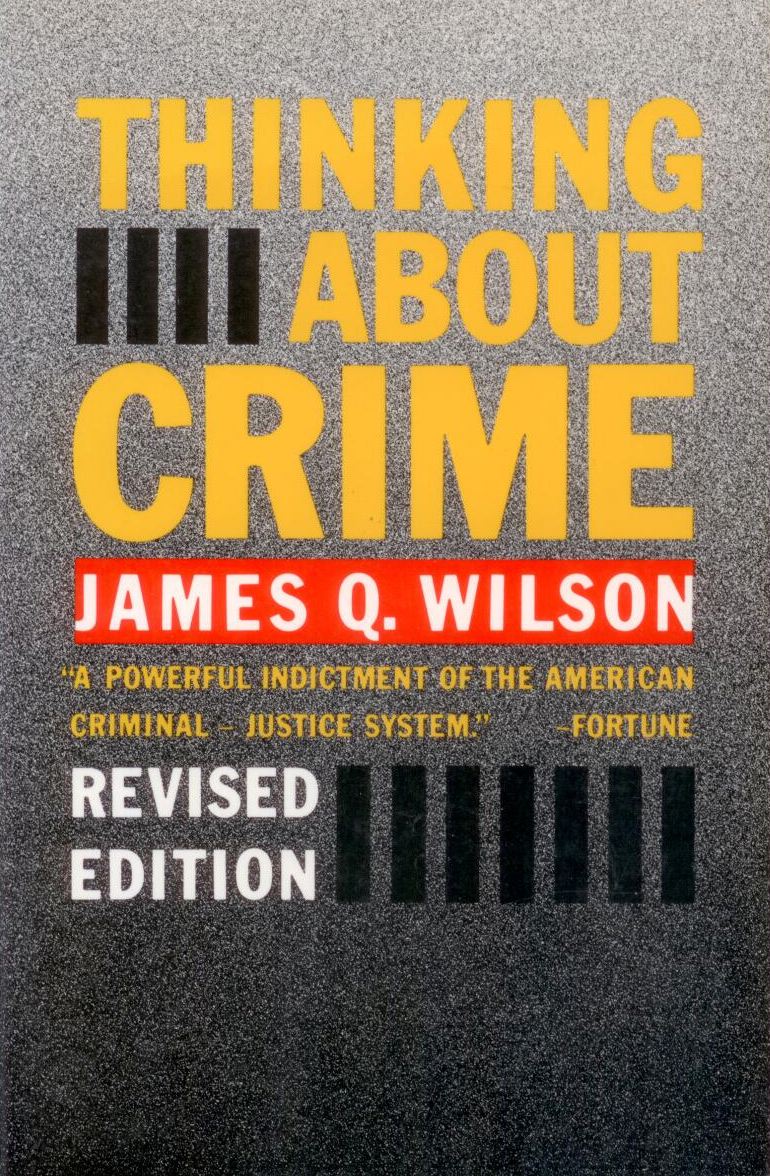James Q. Wilson, Thinking About Crime (Basic Books, 1975, 1976, 1977, 1983, Vintage revised paperback edition, 1985).
“If George Orwell was right — that all great writers have one title that captures the theme of the all their works – that title for Wilson was Thinking About Crime, which first appeared in 1975, then in a much expanded edition in 1985. The crucial word was ‘thinking.’ The book became famous for its relentless criticism of criminologists, who urged efforts to alleviate the ‘root causes’ of crime — in poverty and social neglect — rather than focusing on catching, confining, or countering actual criminals. But Wilson was also impatient with politicians and commentators demanding that we ‘get tough on crime’ without much heed to what that would mean or what it would cost. In a book that is filled with statistics and reviews of empirical studies, Wilson tried to capture what was reasonably well known and what was not known. The concluding chapter, for example, expressed skepticism about whether capital punishment deters crime, while acknowledging that the death penalty might well be defended on moral grounds. In the preface to the second edition, he summed up his ‘central message … namely, that we can make more progress thinking analytically and experimentally about crime and its control than we can by exchanging slogans, rehearsing our ideology or exaggerating the extent to which human nature or government institutions can be changed according to plan.'”
Jeremy Rabkin

